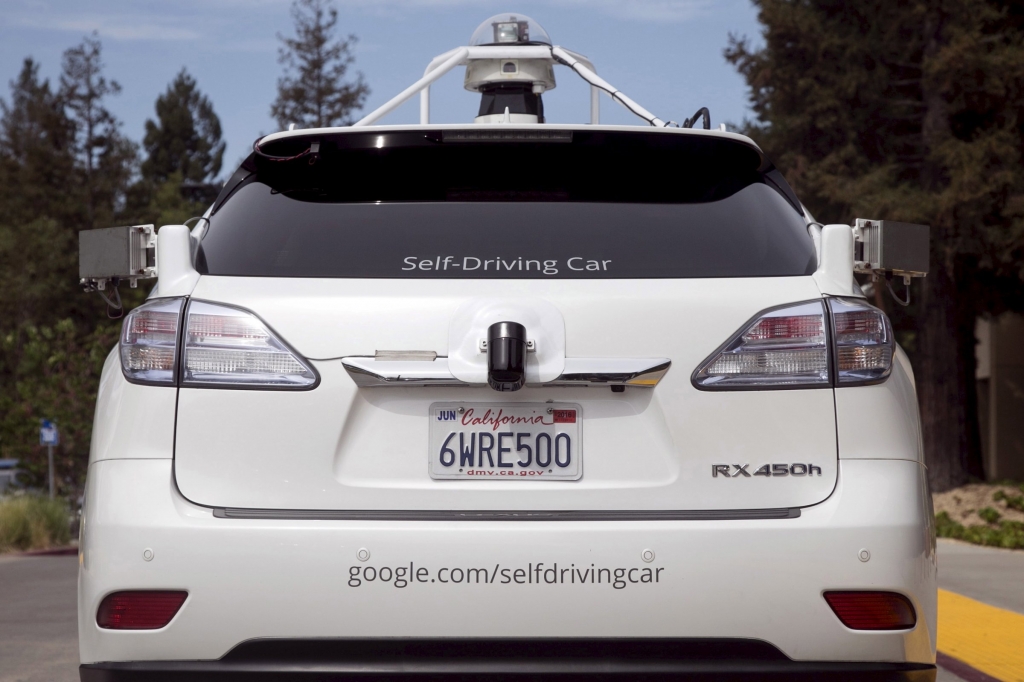-
Tips for becoming a good boxer - November 6, 2020
-
7 expert tips for making your hens night a memorable one - November 6, 2020
-
5 reasons to host your Christmas party on a cruise boat - November 6, 2020
-
What to do when you’re charged with a crime - November 6, 2020
-
Should you get one or multiple dogs? Here’s all you need to know - November 3, 2020
-
A Guide: How to Build Your Very Own Magic Mirror - February 14, 2019
-
Our Top Inspirational Baseball Stars - November 24, 2018
-
Five Tech Tools That Will Help You Turn Your Blog into a Business - November 24, 2018
-
How to Indulge on Vacation without Expanding Your Waist - November 9, 2018
-
5 Strategies for Businesses to Appeal to Today’s Increasingly Mobile-Crazed Customers - November 9, 2018
Feds To Set Rules On Self-Driving Vehicles
A small number of states like California and Florida have already enacted legislation for autonomous-vehicle testing and operation, and some industry lobby groups have said they worry there could soon be a patchwork of disparate state laws.
Advertisement
Announced on Tuesday, these unprecedented guidelines aim to set the stage for the safe testing and deployment of autonomous vehicles, giving researchers and automakers some clues for the future.
“This new policy comes with a lot of bark but not enough bite”, Marta Tellado, president of Consumer Reports, said in a statement.
In particular, the US-based National Highway Traffic Safety Administration (NHTSA) is calling on the OEMs to submit details of their AV systems to regulators so they can undergo a 15-point safety assessment. “We won’t hesitate to protect the American public’s safety”, President Barack Obama wrote. Programmers are wrestling, for example, with the reaction a self-driving vehicle should have when, for instance, it is faced with the limited choice of smashing into a loaded bus on one side or a bicyclist on the other. NHTSA doesn’t say much in its guidelines about semi-autonomous tools like Tesla’s Autopilot, even though some have speculated that these guidelines were delayed because of a fatal crash involving that tech, which limits the effect they’ll have today.
The rules are meant to steer the development of the technology as states like MI and California create their own rules for allowing self-driving cars to hit the road.
NHTSA also released enforcement guidance for automated vehicle technologies. However, as the field of the technology is still growing and changing, it’s expected laws will change as well.
Modern regulatory tools, which officials may be able to use to aid in developing new technologies to respond to safety issues that arise as more self-driving vehicles hit the road.
A self-driving Ford Fusion hybrid auto is test driven, August 18, 2016, in Pittsburgh.
The NHTSA proposal also raises a caution flag for companies such as Tesla Motors Inc, Daimler AG and General Motors Co that are selling, or have proposed to sell, systems that allow cars to take partial control of highway driving but nominally require drivers to remain responsible for operating the vehicle.
“A federal approach to the self-driving industry will be key to enhancing motor vehicle safety while continuing to promote United States leadership, competitiveness and innovation”, coalition general counsel David Strickland said in a release.
Public comment is open on the policy for the next 60 days. Congressional approval would be required to make numerous regulatory changes that are being proposed by NHTSA legally binding. Traditionally, the federal government has regulated vehicles, and states have handled drivers.
Advertisement
It’s a long list, but the fifteen guidance areas in the assessment include data recording and sharing; privacy; system safety; vehicle cybersecurity; human-machine interface; crashworthiness; consumer education and training; registration and certification; post-crash behavior; federal, state, and local laws; ethical considerations; operational design domain; object and event detection and response; fall back (minimal risk condition); and validation methods.





























